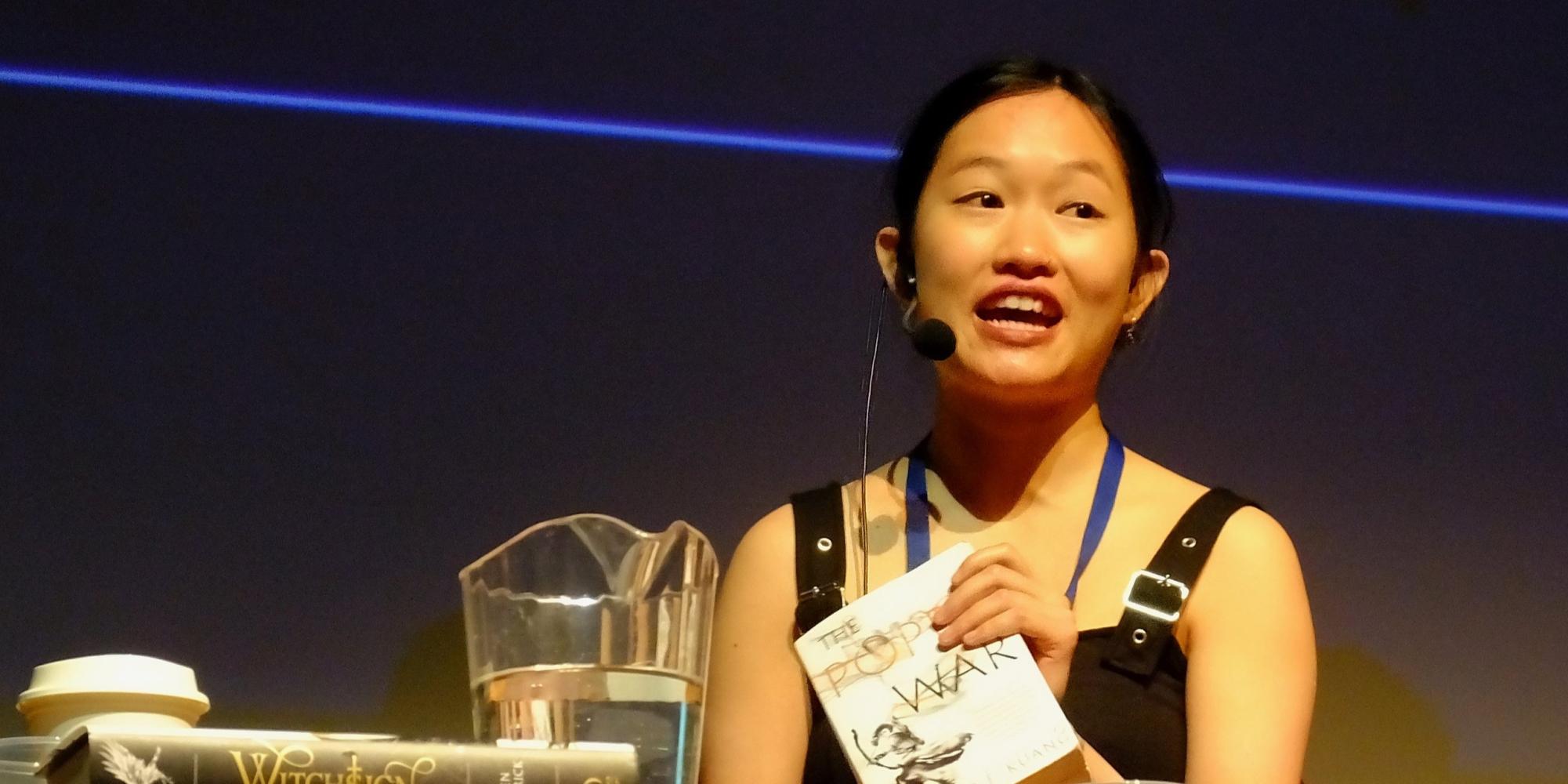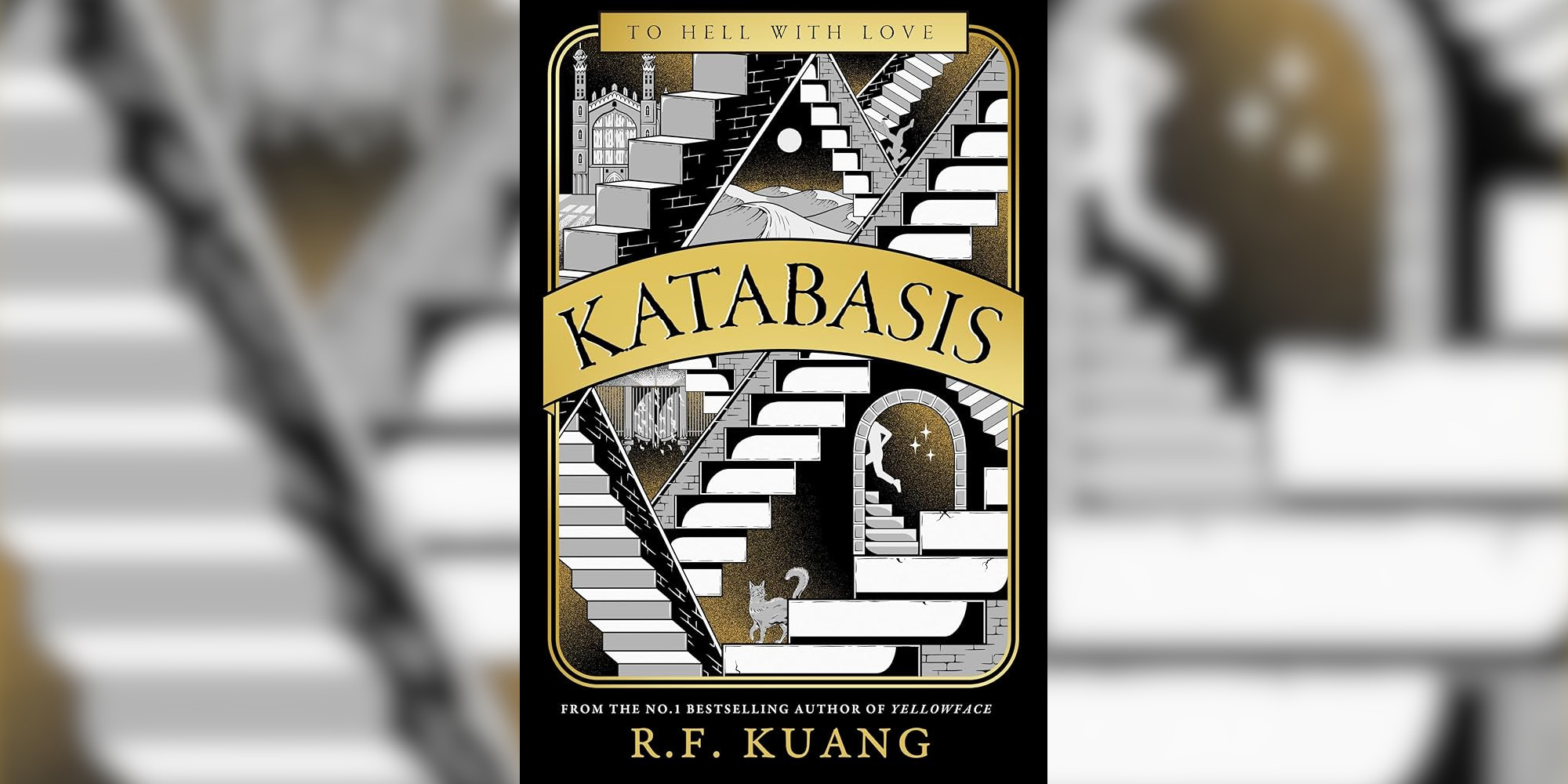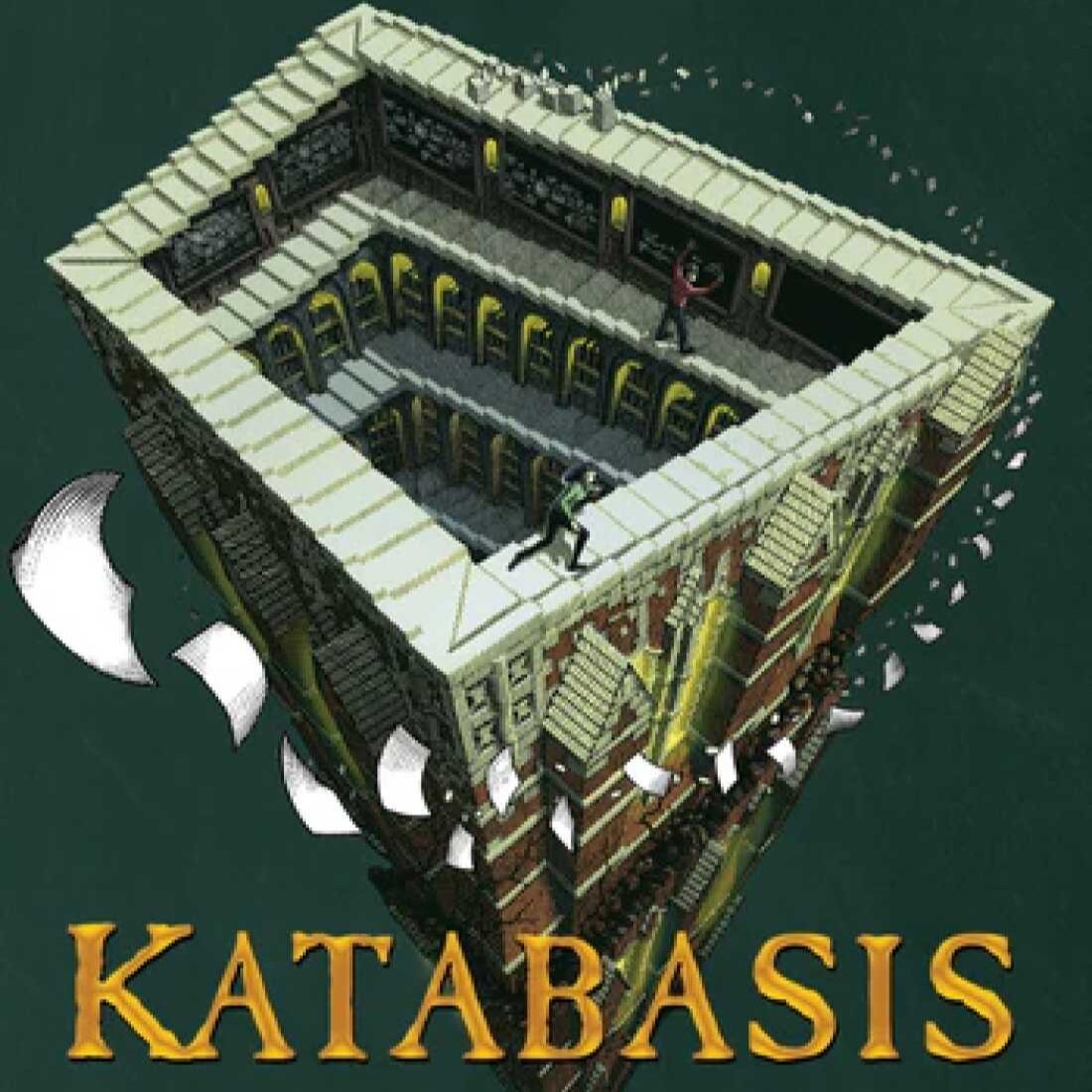At just 29 years old, author R.F. Kuang has made waves in the world of fantasy literature. Her Poppy War trilogy of novels topped the New York Times bestseller list, and her 2022 novel Babel, or the Necessity of Violence won that year’s Nebula Award for best novel. The Gen-Z writer has another potential hit on her hands with her newly released novel Katabasis.
Katabasis, which went on sale on August 26, is book six for Kuang… or perhaps, more fittingly, book 666, as the dark fantasy novel centers around two rival scholars taking a literal journey through Hell. With deeply haunting descriptions of the gory and grim denizens of the underworld, Kuang’s reimagining of Dante’s Inferno for the twenty-first century is a thrilling if imperfect euphony of magic and the macabre.
Katabasis centers around Alice Law, a doctoral candidate in Analytic Magick at the University of Cambridge. Alice has only had one desire: to be the best and most knowledgeable magician of her age. And to be the best, she must work under the tutelage of the current best magician in the world, the snide and sadistic Professor Jacob Grimes. As taxing and unpleasant as she finds working as Grimes’ lab assistant, Alice endures it because a letter of recommendation from Grimes can make her dreams a reality.
Which becomes a problem when Grimes suddenly dies.
While something like a tragic death would stop most people, Alice is not most people, and she resolves to travel down to Hell (because Grimes surely didn’t get into Heaven) and get that letter of rec no matter the cost. However, she isn’t alone, as Peter Murdock—Grimes’ prized student and her only real academic rival—insists on joining her on her infernal traipse. Alice reluctantly allows this, and after some research and some blood magic, the two sojourn into a land of gods, shades, and monsters made of bone.

Kuang’s specialty is giving her readers a healthy dose of dry, trilling humor, accompanied by ladling fantastic scenery and concepts on top. For instance, my favorite description of the character Peter Murdock came from the first chapter, where Kuang mentions how he was:
“always stumbling around with that blithe smile on his face, always offering to help his colleagues puzzle through hiccups in their research, always asking everyone else in seminar how their weekend had been when he knew very well they’d spent it sobbing over proofs that he could’ve done in his sleep.”
She molds Peter through this snarky nature, demonstrating his higher understanding of the curriculum and building this animosity between Peter and Alice. Alice, while aloof and outspoken against Peter, understands the importance of working with Peter in order to track down Grimes.
On a deeper level, the storyline challenges the idea of sexism in the academic sphere and asserts that the sexes working together as equals is key for vital success. The resentment between the two main characters and the systematic approach of academia helps to further an infamous sexist ideology—but by the end of the story, the characters work together tooth and nail against the idea of a male hierarchy and end up squashing anything problematic.

Unfortunately, the fantastical elements and focus on plot dampen the messages about equality behind the story. Kuang is no stranger to writing stories with serious undertones—according to critic Christina Sanders, Kuang’s novel Yellowface succeeds as “a fictional exploration of the prejudices toward Asian people in the book industry”—but the social critique in Katabasis doesn’t feel as rich or consistent as in her previous works.
Instead, Kuang detracts from the seriousness of the toxicity of modern academic culture by morosely skirting around the subject itself. There are multiple occasions where Alice Law receives sexist behavior from other magicians, both students and teachers, and simply shrugs it off like nothing happened. Readers can appreciate the determined glint of what Alice is attempting to do—she wants to build her own way up to where the men are by ignoring her femininity—but it falls flat with the lack of consequence for those who harass, mansplain, and gatekeep.
Additionally, some of Kuang’s biggest fans have expressed disappointment in the lack of romance in Katabasis. Granted, this may be a result of unrealistic fan expectations, as Kuang teased her readers that Katabasis would be her first “romance novel.” Since her specialty is concocting dark academia plot lines with a minute off-chance of a blossoming romantic connection, fans of the fantasy community were looking forward to Kuang finally going all in with a love story. While there are sparks between Alice and Peter, the novel is far more interested in its exploration of its version of Hell and the mechanics of magic in its world than a pairing reminiscent of Katniss and Peeta or Edward and Bella.
One final knock against the book is that it definitely stresses the academia in dark academia: like her other books, Kuang’s text is a treasure trove of obscure literary references and PhD-level lexicon. As Valorie Clark pointed out in her review of the book, “There’s a joke toward the end about how John Gradus is clearly a fake name: the reference is never elucidated, and you’ll only get the joke if you know the phrase gradus ad parnassum means ‘a step toward Parnassus,’ which is the mountain where Apollo and the Muses live in Greek myth.”
Personally, I can appreciate the extensive use of impressive allusions and complex words to help build both characters and scenery, but there were several moments where it felt like I was reading a textbook of research with a side of storyline. Much of the writing suffers from what seems like a need for Kuang to prove how clever she is over her desire to tell a good story. I imagine this style will easily put off casual readers since not everyone wants to interrupt their reading to look up an unfamiliar term every page.
While each reader’s mileage will certainly vary on the dense and esoteric language, Katabasis is nevertheless a worthwhile read for the inventive depiction of Hell alone. Its interesting premise and layered plot are also highlights, even if some character moments feel inconsistent with how a real person put in such an unreal situation would react. Overall, this is a solid effort from Kuang and will delight those that enjoy philosophy and thinking deeply about what they read.












